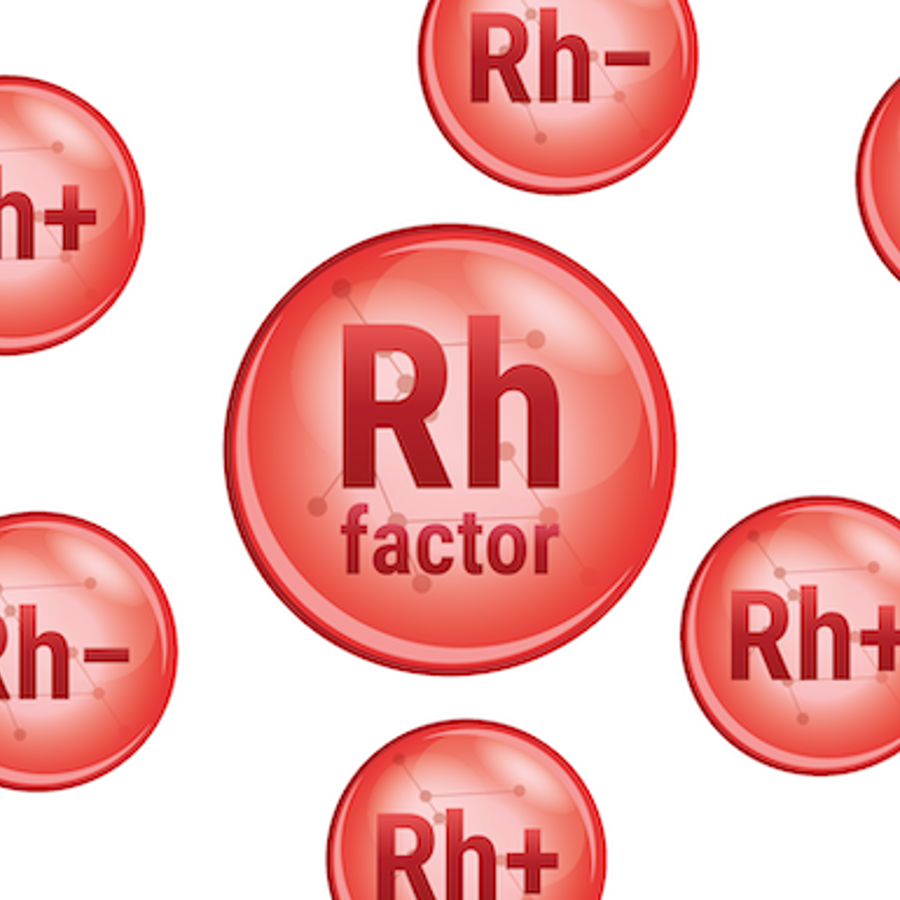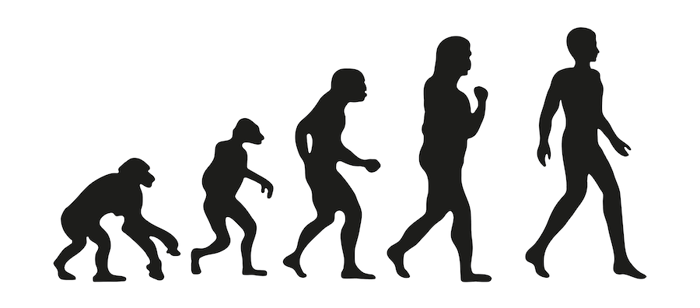
Where does Rh- originate from? Why is it so rare in the United States?
April 25, 2023

- Related Topics:
- Blood type,
- Dominant and recessive,
- Rh factor,
- Evolution
Lisa from Maryland asks:
"Where does rh- come from? Why is it so rare in the United States?"
These are both great questions! You’re right that negative type is fairly rare. Only 15% or so of Americans have this blood type!1
Before we dive all the way in, we need to talk a bit about blood type. You may have already heard terms like A+ blood, B- blood, or O blood. These are terms describing different blood types a person can have.
Our blood cells are covered in little markers or flags, called antigens. You might have “A” type markers, “B” type, both, or neither! But those aren’t the only antigen types. The + or – part of blood type refers to the Rhesus factor, or Rh factor for short. If you have that marker, you have positive type blood. If you don’t have it, you have negative type blood.
Which antigens your body makes are determined by your DNA. There are a few different genes that affect blood type. For example, the ABO gene determines whether you have type A, B, AB, or O. Similarly, Rh genes determine whether you have positive or negative type.

Where does Rh- originate from?
The short answer is that Rh factor is very, very old. Like I mentioned earlier, Rh factor is short for Rhesus factor. This actually refers to how scientists first discovered Rh: in Rhesus macaque monkeys.
Other primates have similar Rh molecules to us. And if you go even further back in evolutionary history, you can even find similar genes in bacteria!2
Humans have two different Rh genes: RHD and RHCE. Together, these genes provide the instructions to make Rh factor. And there can be a lot of differences in these genes that affect your blood in minor ways!3 There are a lot more than just two versions, which is one reason why Rh blood type tests are sometimes inaccurate.
The biggest difference though is in the RHD gene. It turns out that some people don’t have this gene at all. That’s the most common cause of Rh- blood type.
This genetic variation is older than humans are as a species. Our distant hominid, human-like ancestors already had positive and negative blood types!3

Why is Rh- so rare in the United States?
The short answer to this question is: it’s rare everywhere! This is partially because of how Rh factor is passed down from parents to their children.
Much like other traits, eye color and hair color for example, we inherit our blood type via the DNA we get from our parents! Because we inherit half our DNA from each of our parents, their blood type plays a huge role in what blood type we have.
Rh- is rare partially because of how it is inherited: Rh- is a recessive trait. A recessive trait is only visible when you inherit it from both parents. In contrast, a dominant trait shows up even if you only inherit it from one parent.
Since you have two copies of your Rh gene (one from each parent!) here’s what that looks like:
|
Rh genes |
Blood type |
|
+ + |
Positive |
|
+ - |
Positive |
|
- - |
Negative |
So someone with DNA for both Rh+ and Rh- will have positive type blood. This is one reason why Rh- is less common.
But wait! There’s more!
Still, the fact that Rh- is recessive doesn’t fully explain why it’s so rare! It’s absolutely possible for a recessive trait to be common, while the dominant version is rare.
For example, you may be surprised to learn that while Type O blood is recessive, it’s the most common type! Around 47% of Americans have Type O blood. Type A is the next most common at 37%, then B at 12%, then AB at 4%. (Though exact numbers vary depending on ancestry.)1
But there is another reason why Rh negative blood might be rare. Rh+ babies born to Rh- mothers can have a problem called hemolytic disease of the newborn. Today, this problem is easily prevented with a medicine called RhoGAM. But before this medicine was widely available, babies could die from the condition.
That meant that Rh- mothers might not have as many healthy babies, and wouldn’t pass on their Rh- genes as often. That could have caused Rh- to stay fairly rare.3 With that in mind, it’s maybe surprising that Rh- is as common as it is today!
It’s also possible that the blood type frequencies are affected by random chance. A lot of random things can happen in life! Sometimes a trait will become more or less common for no particular reason, which is a concept called genetic drift.
While perhaps this doesn’t perfectly answer the question of why Rh- is so rare in the United States, you now understand how it might be rarer. Whether it’s due to the fact that it’s a recessive trait, due to pregnancy risks, or simply due to the randomness of genetic drift… we do know that blood types that are Rh- are much more rare than their Rh+ counterparts!
Read More:
- Article about ancient Rh molecules that I mentioned earlier: What is Rhesus factor?
- Article about Rh blood type tests that I mentioned earlier: How accurate are Rh blood type tests?
- Good resource for general blood-type info (and easy links to donate blood!): Facts About Blood and Blood Types
- Same website, but Rh-factor specific: What Is The Rh Factor? Why Is It Important?
- Some more technical Rh-factor descriptions + its important in regards to pregnancies: Rh factor blood test

Author: Ben Esmaili
When this answer was published in 2023, Ben was a M.S. candidate in the Stanford University School of Medicine, studying Human Genetics and Genetic Counseling. Ben wrote this answer while participating in the Stanford at The Tech program.
 Skip Navigation
Skip Navigation
